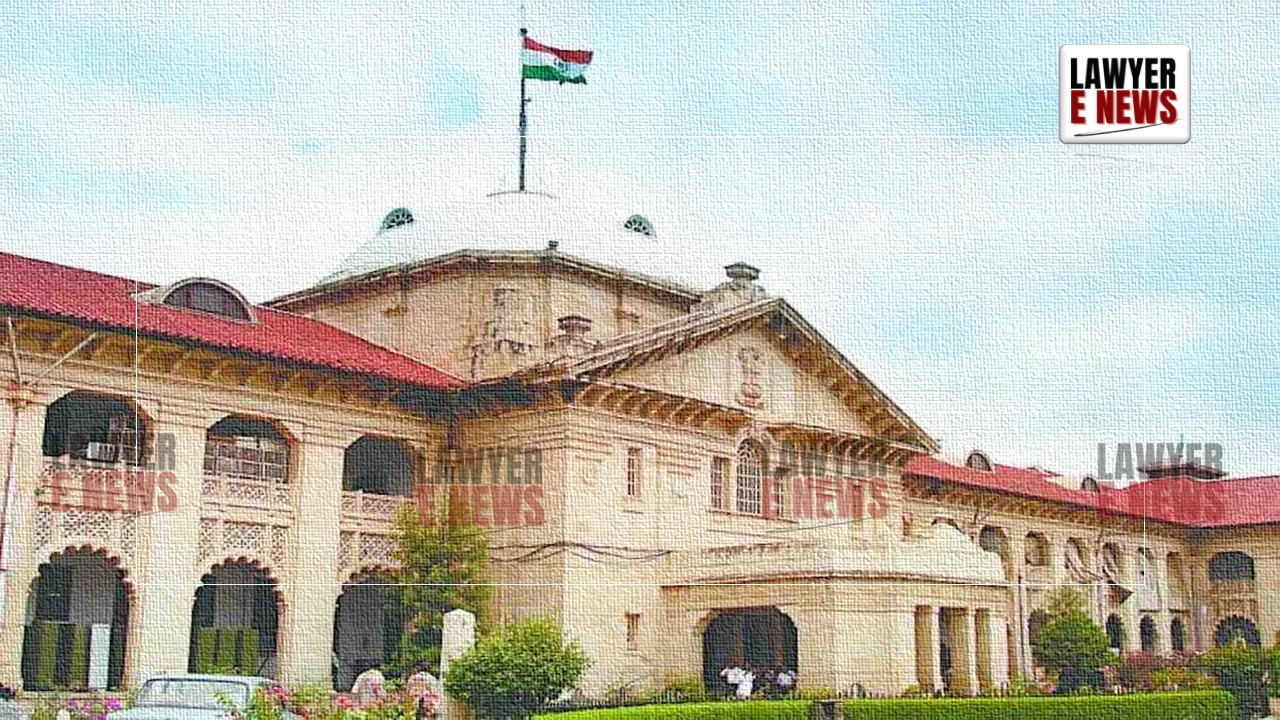-
by Admin
15 February 2026 5:35 AM



Allahabad High Court set aside the conviction and life sentences imposed on Veda alias Vedpal and five other appellants in connection with the murder of four individuals in the case Veda alias Vedpal & Ors. vs. State of Uttar Pradesh. The Division Bench of Justice Ashwani Kumar Mishra and Justice Mayank Kumar Jain acquitted the appellants, citing serious doubts about the identification of the accused in poor lighting conditions, the non-recovery of critical evidence, and the failure of the prosecution to conclusively prove the motive behind the murders.
The case originated from an incident that occurred during the night of May 24-25, 2004, in Bulandshahr district, Uttar Pradesh, where four individuals—Zalim Singh, Santosh, Dinesh, and Kunwar Singh—were shot dead at their respective tube wells. The prosecution alleged that the murders were carried out by Veda alias Vedpal and others due to opposition to an illicit relationship between Veda and Neetu, a married woman. The trial court convicted the accused based on eyewitness testimonies that claimed to have identified the attackers in the light of torches and lanterns. The appellants challenged the conviction, arguing that the identification in such poor lighting conditions was unreliable and that critical pieces of evidence, including the weapons and torches, were not properly produced during the trial.
Identification in Poor Lighting: The primary issue before the court was the identification of the accused, as the murders occurred at night in dark conditions. Eyewitnesses claimed to have identified the attackers in the light of torches and a lantern. However, no lantern was recovered, and the torches were not presented during the trial, raising serious doubts about the accuracy of the identification.
Motive: The prosecution alleged that the murders were motivated by opposition to an illicit relationship between Veda and Neetu. However, the court found that this motive was insufficient to justify such a brutal crime, particularly since the evidence supporting this theory was largely based on hearsay and unsubstantiated claims.
Recovery of Weapons: The court examined the forensic evidence regarding the recovery of firearms. The forensic reports contradicted the prosecution’s claims, as the bullets recovered from the victims did not match the firearms allegedly used by the accused.
The court extensively analyzed the conditions under which the eyewitnesses claimed to have identified the accused. The prosecution argued that the witnesses used torches and a lantern to recognize the attackers. However, the court observed that no lantern was recovered from the scene, and the torches were not presented as evidence during the trial.
"The identification of the appellants by the witnesses seems highly doubtful in the light of the non-recovery of the lantern and the torches. The witnesses claimed they identified the assailants in a few seconds of torchlight in a dark night. Such identification cannot be solely relied upon for conviction."
([Paras 72-85])
The court emphasized the prosecution's failure to produce critical evidence, particularly the torches, during the trial. The Investigating Officer had recovered the torches during the investigation, but they were not presented in court. The court held that the non-production of these seized articles severely undermined the credibility of the prosecution's case.
"Had those torches been produced during the evidence, the appellants would have had the opportunity to exercise their right to cross-examine the witnesses regarding the torches. Their non-production raises doubts about the accuracy of the prosecution's version of events."
([Paras 84-86])
The court was not convinced that the alleged illicit relationship between Veda and Neetu provided a strong enough motive for the brutal killing of four people. The court noted that the relationship was opposed by the victims, but this alone was insufficient to substantiate the claim that the appellants committed the murders.
"The prosecution has completely failed to establish a strong motive. Merely opposing an illicit relationship is not a sufficient reason to justify the elimination of four individuals."
([Paras 91-99])
The court examined the forensic evidence related to the recovery of firearms from the accused. The bullets recovered from the bodies of the victims did not match the firearms attributed to the appellants. The court held that the forensic evidence did not conclusively link the weapons to the murders, further weakening the prosecution's case.
"The forensic laboratory report did not corroborate the prosecution's case. The weapons allegedly recovered from the appellants were not linked to the crime, raising further doubts about their involvement."
([Paras 106-110])
The court allowed the appeals, setting aside the convictions and sentences of the appellants. It held that the prosecution failed to prove beyond reasonable doubt that the appellants were involved in the murders. The court emphasized that the unreliable identification in poor lighting, coupled with the non-production of critical evidence, rendered the prosecution’s case insufficient to warrant conviction.
"The prosecution has failed to establish beyond reasonable doubt the involvement of the appellants. The identification of the accused in poor lighting conditions, the non-recovery of the lantern and torches, and the mismatch of forensic evidence with the weapons recovered all raise significant doubts about the prosecution's case." ([Paras 124-125])
The appellants, who had already spent 18 years in prison, were acquitted and ordered to be released unless they were wanted in any other case.
Date of Decision: October 16, 2024
Veda alias Vedpal & Ors. vs. State of Uttar Pradesh
